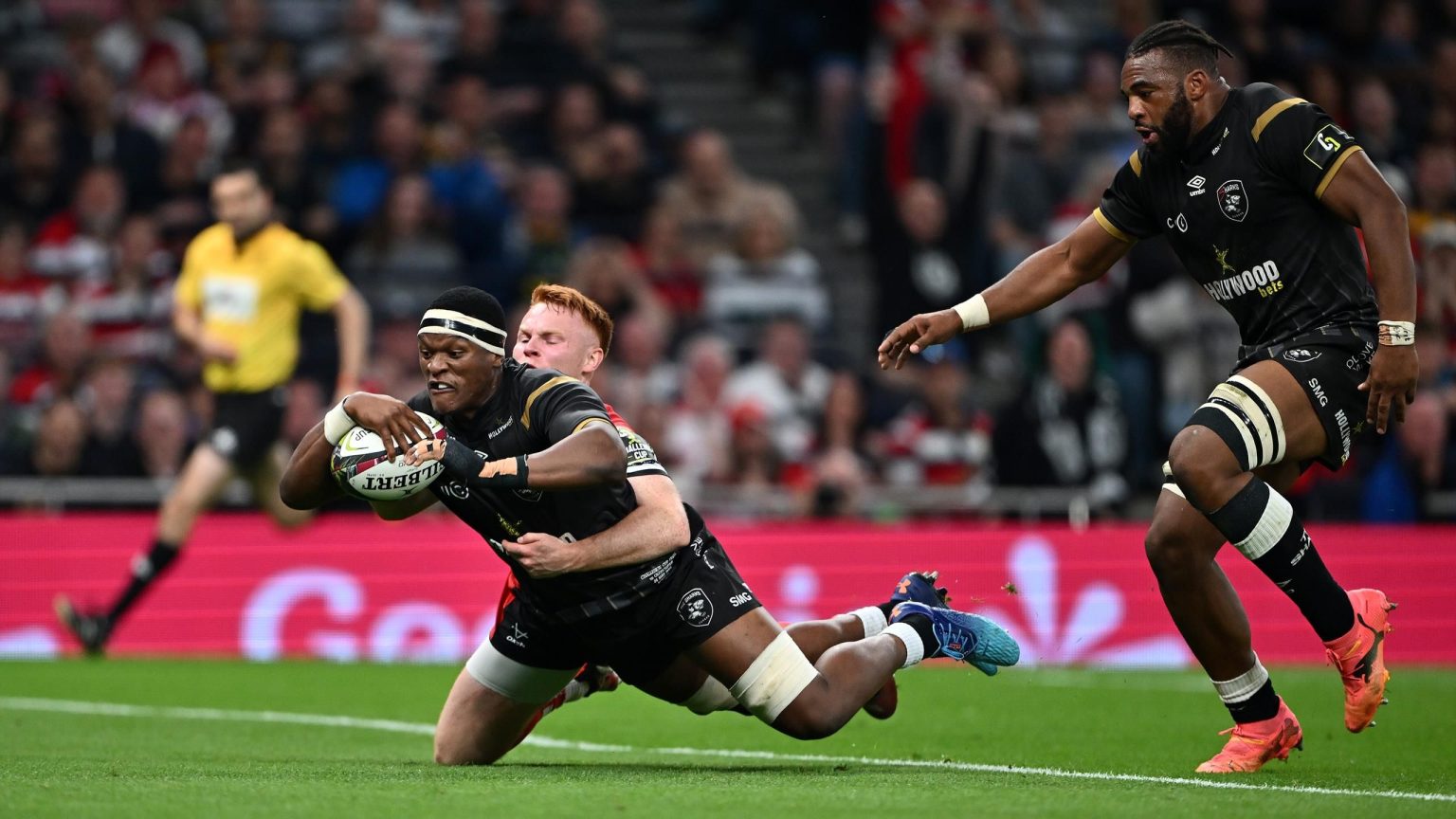The Sharks displayed dominance in the scrum during the Challenge Cup final against Gloucester at Tottenham Hotspur Stadium. With a penalties from the scrum count of 6-1 in their favor, the South African side’s front-row prowess was evident. While Gloucester initially had control in the first ten minutes of the match, they missed a scoring opportunity when Johnny May knocked on just in front of the try line. The Sharks capitalized on their momentum, with Phepsi Buthelezi scoring a brilliant try and Siya Masuku making eight perfect kicks at goal. Tries from Makazole Mapimpi and Aphelele Fassi in the second half sealed their victory, despite Gloucester scoring three tries in the final minutes to make the scoreline closer than it seemed.
The spotlight of the match was on the Sharks’ scrum dominance, a challenge that Gloucester struggled to overcome. With five World Cup winners in their front row, the South African team proved too powerful for their opponents. Despite making significant changes to their front row at halftime, Gloucester still found themselves on the back foot. Commentator Austin Healey’s analogy of not trying to fight against a lion because they always fight harder perfectly summarized the unyielding strength of the Sharks’ scrum. Vincent Koch’s performance at set pieces, coupled with 12 carries and 4 gainline successes, earned him the Player of the Match title.
Player ratings for Gloucester and the Sharks reflected the overall performance of each team on the field. Gloucester’s Carreras, May, and Ludlow received average ratings, while the Sharks’ Fassi, Masuku, and Koch received high marks for their contributions to the team’s victory. Despite Gloucester’s valiant effort, the Sharks’ formidable front row and consistent kicking from Masuku proved to be the deciding factors in the match. The Sharks became the first South African side to win a European club trophy, further solidifying their dominance in the tournament.
Key moments in the match included Harris fumbling near the try line, Buthelezi’s exceptional try after charging through defenders, and Fassi’s dive under the posts. Gloucester’s decision to change their entire front row in a desperate attempt to shift the momentum ultimately did not change the outcome of the match. Despite Gloucester scoring three tries towards the end of the game, the Sharks’ lead was insurmountable. Mapimpi’s try after Carreras failed to catch a high ball and Masuku’s perfectly placed kick showcased the Sharks’ clinical execution on the field.
In conclusion, the Sharks’ comprehensive victory in the Challenge Cup final highlighted their dominance in the scrum and their ability to capitalize on scoring opportunities. Gloucester’s attempts to counter the Sharks’ front-row strength ultimately fell short, as the South African side controlled the match from start to finish. With the Sharks making history as the first South African team to win a European club trophy, their performance in the final solidified their status as a formidable force in international rugby. The individual performances of players like Koch, Fassi, and Masuku were instrumental in securing the Sharks’ victory and showcasing their talent on a global stage.













